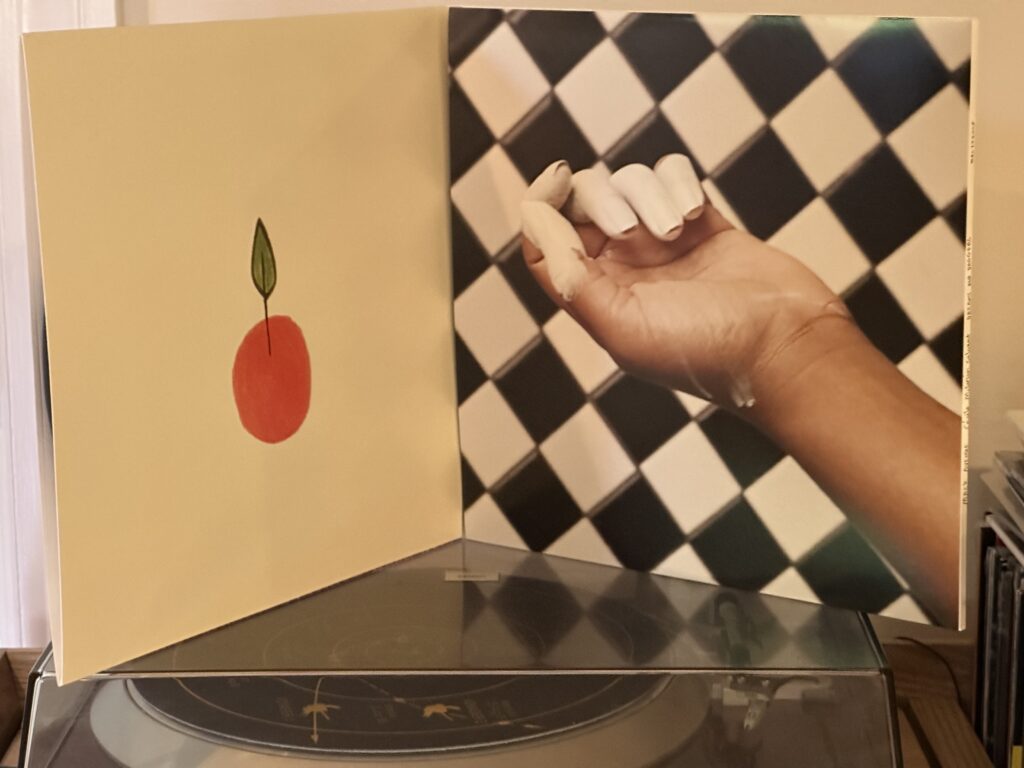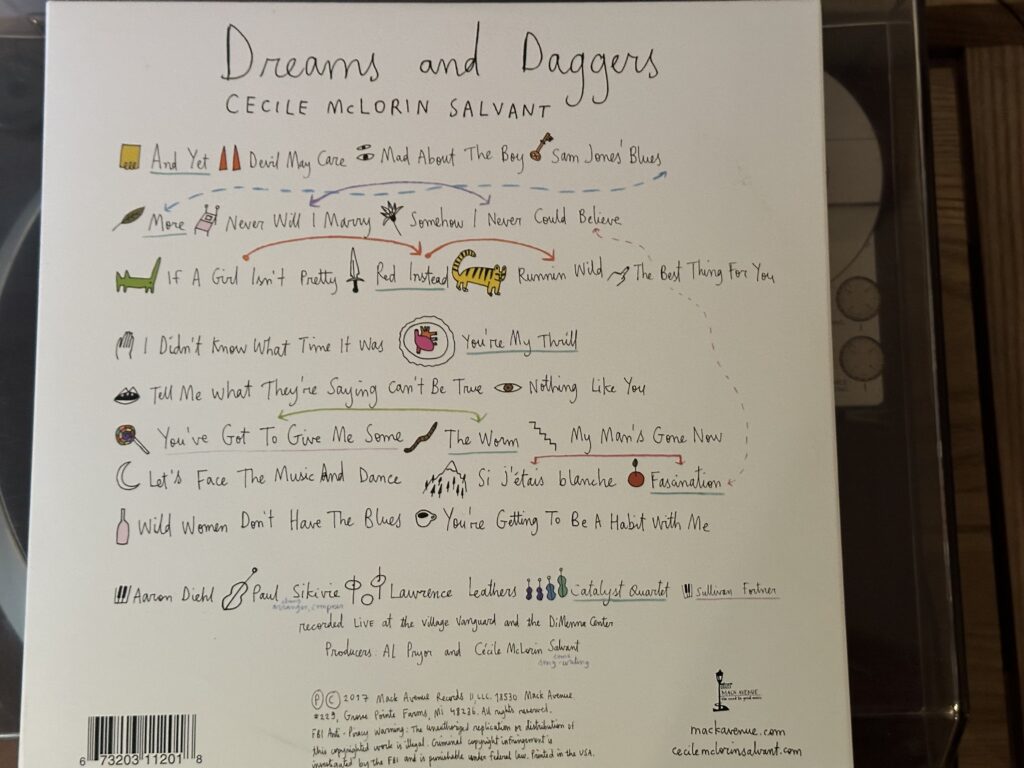
Album of the Week, July 6, 2024
A lot of vocal talents took the stage from the 1980s, when we checked in on the end of Johnny Hartman’s career, to the 2010s when we continue our story. Zion this series I’m skipping over a bunch of talented performers, including Diana Krall, Melody Gardot, and others, but an awful lot of those intervening vocalists were relegated to the easy-listening side of the charts. Cécile McLorin-Salvant is not easy-listening. Brilliant, yes, with a gorgeous voice, but not easy.
Salvant grew up in Miami to Haitian and French parents, and was bilingual from a young age. Studying law and voice in Aix-en-Provence, she quickly built a career as an innovative singer, winning the Thelonious Monk International Jazz Competition. She made a series of albums that won critical acclaim; by the time this album was released in 2018 she had a Grammy nomination and an award for Best Vocal Jazz Album, for her 2016 For One to Love, under her belt. She was by this time steadily working with a piano trio featuring Paul Sikivie on bass and Lawrence Leathers on drums, and led by Aaron Diehl.

Dreams and Daggers serves as a live document of Salvant’s evolution with this working band… with some tantalizing hints of bigger things to come. Not all of the 23 tracks on this triple album are live, and the studio recordings, like “And Yet” which opens the album, often feature a string quartet instead of the trio. But the bulk of the album is devoted to the interplay of the trio with Salvant’s voice, and it’s glorious.
I’m not going track by track through this album, but there are a few numbers that merit special mention. Bob Dorough’s “Devil May Care,” one of two Dorough numbers on the album, is given an off-kilter propulsive energy thanks to Salvant’s delivery, which tumbles headlong past bar lines and stretches out the chorus until it lands at Diehl’s feet. He plays with tempo but also with quotations, dropping a little Ferde Grofé (which to be fair is more than implied by Dorough’s melody) before proceeding into a sonata-like improvisation that concludes with a quotation from Beethoven’s Fifth (not the most famous motif, but part of the development). Bassist Sikivie plays with meter, going from common time to a version of Salvant’s skewed bars, before handing to Lawrence Leathers for a solo that calls up hints of New Orleans amid the general bombast. The group comes back, finishing in a different key, to general applause.
One of the numbers with strings alongside the trio, “You’re My Thrill” takes the Sidney Clare/Jay Gorney standard from a pretty but restrained opening to an increasingly naked expression of desire and longing, all on the strength of Salvant’s emotional range and the the spiraling tonality of the string arrangement, which seems to shift from one key to another with each bar. As does Salvant; one moment she’s Sarah Vaughan, the next she’s Marlene Dietrich. It’s gorgeous and over too soon.
And then there’s “You’ve Got to Give Me Some,” a bald faced reading of the bawdy Spencer Williams blues standard that was originally recorded by the great Bessie Smith. A big part of Salvant’s book to this point has been taking standards and reading them deeply through a woman’s perspective, and this fits that formula, and then some. This is the only number in which the piano is played by Sullivan Fortner instead of Aaron Diehl; he would go on to be her principal collaborator following this album, and he follows her closely throughout the verses and then turns into a complete beast on his solo. Of course, that’s not the reason to listen to this rendition; it’s her knowingly (and winkingly) horny delivery of every double entendre in the books, and then some. (Actually, the very best part might be her thanking her mother at the end for supporting her through eight shows, and then saying, “and I’m sorry, Mom, I’m sorry, Mom! Sorry.”)

Dreams and Daggers is a great summation of the first part of Salvant’s career, a sprawling survey that captured her unique voice, idiosyncratic taste, and ability to see deeply into the Great American Songbook. She was to dial all of those strengths up in her next album for Mack Avenue, which we’ll listen to next time.
You can listen to this week’s album here:
* PS – I try to keep to a regular schedule with these, but a one-two punch of vacation travel following business travel, plus a strained right elbow, made me decide that I would ultimately take a mulligan for last week. But I’ll see you in a week with the next album.

One thought on “Cécile McLorin Salvant, Dreams and Daggers”